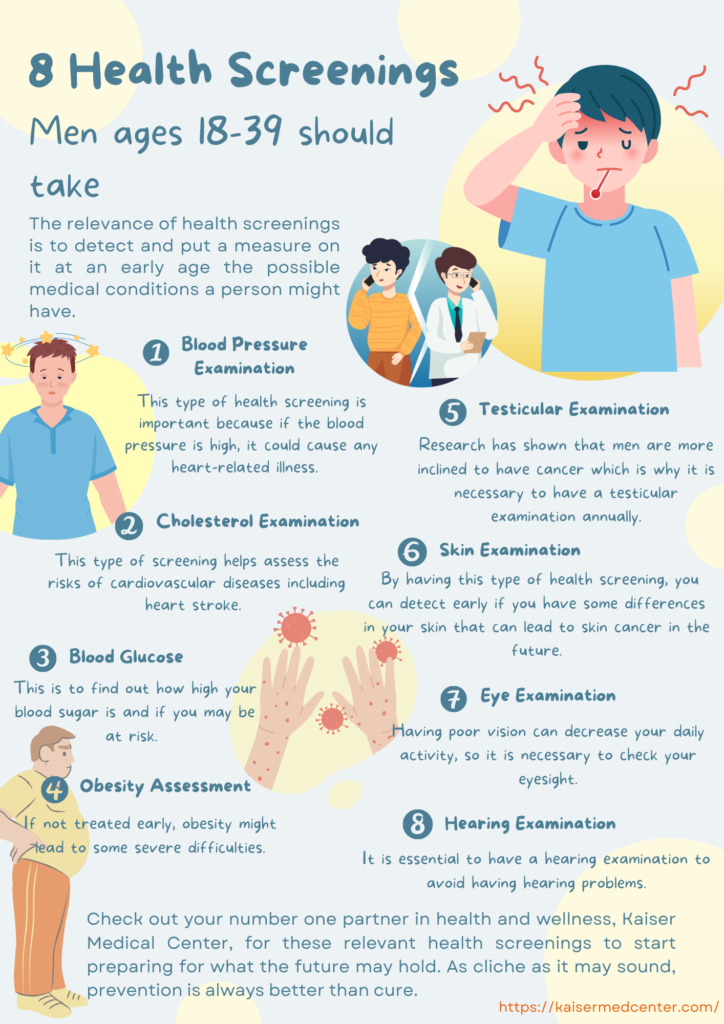The relevance of health screenings is to detect and put a measure on it at an early age the possible medical conditions a person might have. The number of people who undergo screenings is low, as long as they can execute physical activities that don’t concern their physical health, they view themselves as healthful.
There is a list of health screenings men should take to assess even at an early age (18 to 39 years old) the possible diseases one could have. These are exams in Blood Pressure, Cholesterol, Obesity, Eye, testicular, Skin, Blood Glucose, and Hearing examinations.
- Blood Pressure examination – This type of health screening is important because if the blood pressure is high, it could cause any heart-related illness.
- Cholesterol examination – This type of screening helps assess the risks of cardiovascular diseases including heart stroke.
- Blood Glucose – This is to find out how high your blood sugar is and if you may be at risk.
- Obesity Assessment – If not treated early, obesity might lead to some severe difficulties.
- Testicular exam – Research has shown that men are more inclined to have cancer which is why it is necessary to have a testicular examination annually.
- Skin exam – By having this type of health screening, you can detect early if you have some differences in your skin that can lead to skin cancer in the future.
- Eye exam – Having poor vision can decrease your daily activity which is why it is necessary to have your eyesight checked.
- Hearing exam – One way to communicate is by hearing the things that surround us. It would be difficult to communicate if there’s a difficulty with our hearing which is why it is essential to have a hearing examination to avoid having hearing problems.
Through these relevant health screenings, it can help determine the probable risks of men aged from 18 to 39 and can take developed medications to prevent any illnesses from becoming worse or enhance their lifestyle.
Check out your number one partner in health and wellness, Kaiser Medical Center, for these relevant health screenings to start preparing for what the future may hold. As cliche as it may sound, prevention is always better than cure.
